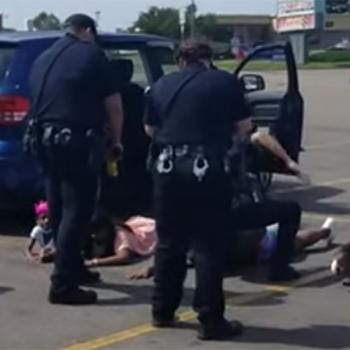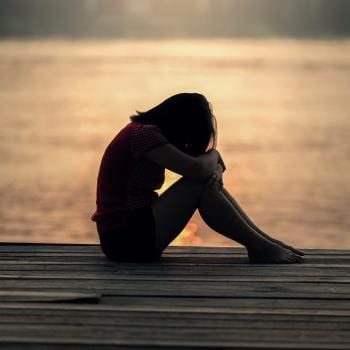We often talk about victim blaming as it relates to rape, but victim blaming plays a similar function when it comes to police brutality as well. In both cases, we as a society look for something the victim must have done wrong, some way that they surely must have brought what happened on themselves. In the case of rape, we as a society ask whether they drank too much or send the wrong message through their clothing or behavior? In the case of police brutality, we as a society ask whether they talked back to a cop or failed to follow orders.
I’ve seen this again in the conservative response to a South Carolina police officer flipping a teenager and her desk to the ground and then throwing her across her high school classroom. If You Don’t Want Your Kids to Be ‘Assaulted’ by the Cops, Teach Them to Respect Authority, Matt Walsh titled his post on the subject. Do you see what I mean about parallels between this and slut shaming? “If You Don’t Want Your Kids to Be “Raped” on a College Campus, Teach Them Not to Drink So Much.” While not an actual headline, many an article stating just this has been written in recent years.
Of course, the problem is that we should be able to drink “too much” and flirt without getting raped, and that we should be able to talk back to a cop or refuse to follow that violate our rights without getting shot or arrested on trumped up charges. And, in the case of the South Carolina teen, we should be able to make stupid age-appropriate mistakes in school without being thrown from our desks by a police officer in front of our entire classrooms. The punishment does not meet the crime—and the crime is not always actually a crime.
Why, then, are we as a society so invested in victim blaming? For one thing, if we can find a way to pin the blame on the victim, we can assure ourselves that this won’t happen to us, too. We don’t want to see rape or police brutality as something that is capricious, something we can’t protect ourselves from, because that is scary. Instead, we want to know that if we follow a scripted set of rules, we’ll be safe.
Of course, it doesn’t work like that. There is no script that would have saved seven-year-old Aiyana Jones from being shot by cops in her own home in the middle of the night. There are no rules Alecia Phonesavanh could have followed to save her toddler from being critically injured by a flash grenade during a nighttime police made in search of two ounces of pot. There is no script that would have saved Tamir Rice from being shot by police.
Then again, perhaps individuals like Matt Walsh would argue that there is a script for these cases. Aiyana Jones should have avoided living in an apartment below a murder suspect, perhaps. Alecia Phonesavanh could have avoided having a nephew suspected of drug dealing, I suppose. And Tamir Rice? What, he should have known better than to carry a toy gun while black?
While the three cases outlined above are fairly open and shut, others may not be—and that is okay. There is no such thing as a perfect victim, and just because an individual is not wholly innocent does not mean he (or she) deserves what they got. Freddie Grey had a criminal record, ran from police, and was found to have an illegal weapon before being arrested and transported so violently that he later died. Eric Garner was illegally selling loose cigarettes before the violent arrest that resulted in his death. Neither of these men were perfect victims, but did their actions really merit death sentences?
There’s another reason we as a society look for ways to blame the victim. We don’t want to believe we live in a country where rape—or police brutality—are as prevalent as they are. We look for something—anything—the victim must have done wrong in our sheer disbelief that such things could happen, and so often.
But let me ask you something. Do we want to live in a society where running out of the way when a squad car almost hits you is grounds for violent arrest? Do we want to live in a society where asking questions during a traffic stop is grounds for a death sentence? Doesn’t that seem just a little bit—or more than a little bit—fascist? I would rather teach my children to advocate for justice and protect the weak and less fortunate than teach them to respect authority.
It should be remembered victim blaming is not a victimless crime. When we look for ways to blame the victim rather than address the underlying systemic problems, we only guarantee that there will be more victims.














